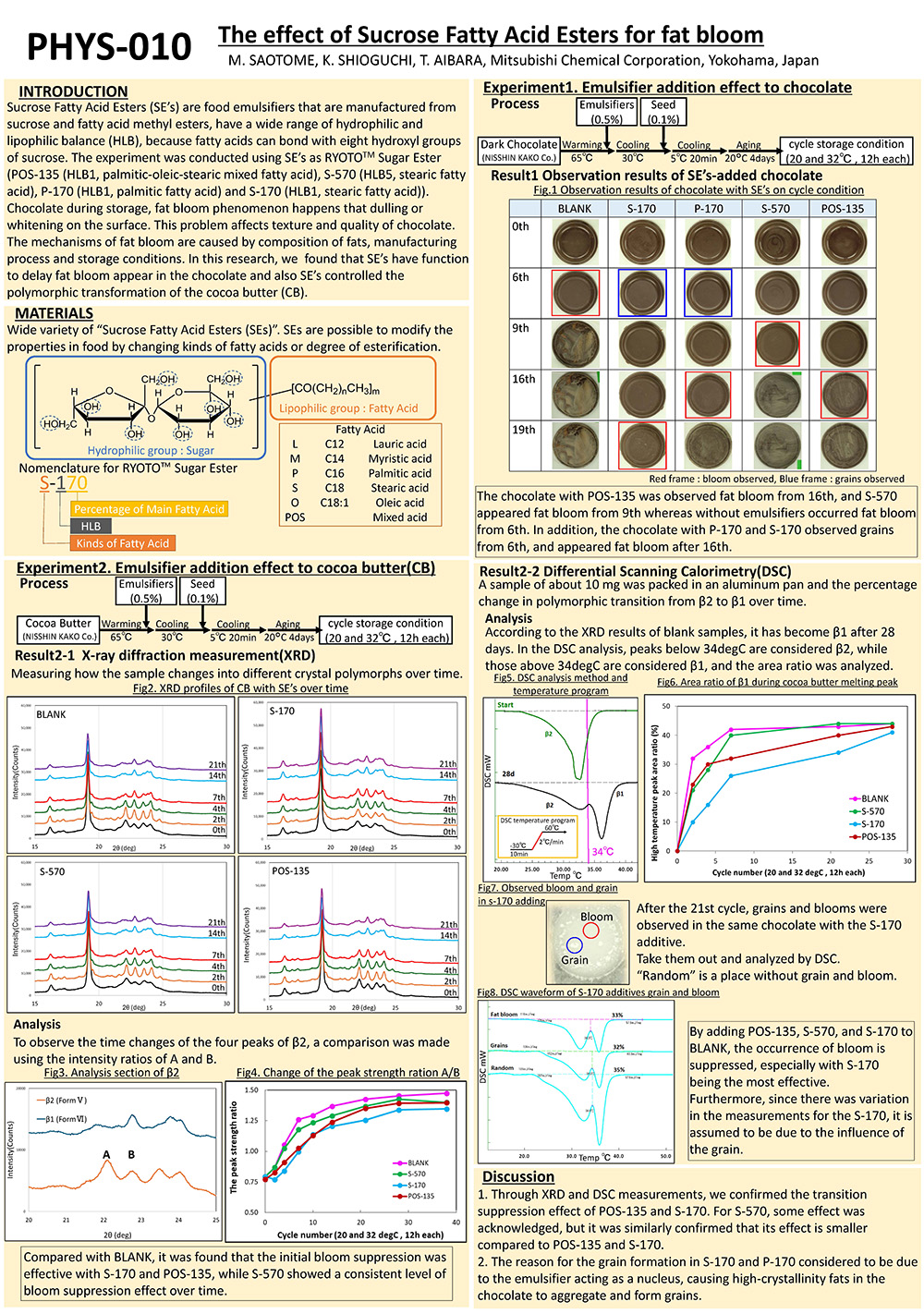Sucrose Fatty Acid Esters (SE’s) are food emulsifiers that are manufactured from sucrose and fatty acid methyl esters, have a wide range of hydrophilic and lipophilic balance (HLB), because fatty acids can bond with eight hydroxyl groups of sucrose. In this research, we researched that SE’s controlled the polymorphic transformation of the cocoa butter (CB). The experiment was conducted using SE’s as RYOTOTM Sugar Ester (POS-135 (HLB1, palmitic-oleic-stearic mixed fatty acid), S-570 (HLB5, stearic fatty acid), P-170 (HLB1, palmitic fatty acid) and S-170 (HLB1, stearic fatty acid)).
Chocolate during storage, fat bloom phenomenon happens that dulling or whitening on the surface. This problem affects texture and quality of chocolate. The mechanisms of fat bloom are caused by composition of fats, manufacturing process and storage conditions. CB has six polymorphic forms, frequently named as γ, α, β′2 (Form III), β′1 (Form IV), β2 (Form V) and β1 (Form VI), and β1 is the most stable crystal. The factors that fat bloom occurred are known to be related to polymorphic transformation from β2 to β1 in the chocolate. Emulsifiers are known to inhibit fat bloom by improving distribution of seed crystals and crystallization and being able to prevent transition of fat crystals into β1 polymorph which is associated with fat bloom.
We evaluated fat bloom suppressant effect in CB with SE’s. The chocolate with SE’s was kept on the cycle storage condition (20 and 32 degC, 12h each). As a result, the chocolate with POS-135 was observed fat bloom from 13th, and S-570 appeared fat bloom from 9th whereas without emulsifiers occurred fat bloom from 6th. In addition, the chocolate with P-170 and S-170 observed grains from 6th, and appeared fat bloom after 14th. In conclusion SE’s have function to delay fat bloom appear in the chocolate. Also, we found that SE’s suppress the polymorphic transformation by X-ray diffraction measurement (XRD) and differential scanning calorimetry (DSC).
